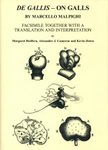![Acid Rain and the Rise of the Environmental Chemist in Nineteenth-Century Britain Acid Rain and the Rise of the Environmental Chemist in Nineteenth-Century Britain]()
Click to have a closer look
About this book
Contents
Customer reviews
Biography
Related titles
About this book
Robert Angus Smith (1817-1884) was a Scottish chemist and a leading investigator into what came to be known as 'acid rain'. This study of his working life, contextualized through discussion of his childhood, education, beliefs, family, interests and influences sheds light on the evolving understanding of sanitary science during the nineteenth century.
Born in Glasgow and initially trained for a career in the Church of Scotland, Smith instead went on to study chemistry in Germany under Justus von Liebig. On his return to Manchester in the 1840s, Smith's strong Calvinist faith lead him to develop a strong concern for the insanitary environmental conditions in Manchester and other industrial towns in Britain. His appointment as Inspector of the Alkali Administration in 1863 enabled him to marry his social concerns and his work as an analytical chemist, and Acid Rain and the Rise of the Environmental Chemist in Nineteenth-Century Britain explores his role as Inspector of the Administration from its inception through battles with chemical manufacturers in the courts, to the struggle to widen and tighten the regulatory framework as other harmful chemical nuisances became known.
This study of Smith's life and work provides an important background to the way that 'chemical' came to have such negative connotations in the century before publication of Rachel Carson's Silent Spring. It also offers a fascinating insight into the changing landscape of British politics as regulation and enforcement of the chemical industries came to be seen as necessary, and is essential reading for historians of science, technology and industry in the nineteenth century, as well as environmental historians seeking background context to the twentieth-century environmental movements.
Contents
- Contents: Introduction: short biography and emergence of the civil scientist
- The influence of Graham, Liebig and Playfair on Robert Angus Smith
- Robert Angus Smith's Manchester
- Sanitary science, disinfectants and 'acid rain'
- Nuisance vapours, 'the monster nuisance of all' and their legal challenge
- The 'civil scientist' in action
- Extension of regulation from the 1870s and increasing health concerns
- Robert Angus Smith's legacy
- Epilogue
- Bibliographies
- Index
Customer Reviews
Biography
An independent historian, Peter Reed has spoken widely on nineteenth-century science and technology, in particular chemistry, chemical technology, the environment and early chemical dictionaries. It was while working for National Museums and Galleries on Merseyside that his interest in industrial archaeology and history began. He is an active member of the Royal Society of Chemistry Historical Group, Society for the History of Alchemy and Chemistry and Newcomen Society.



































